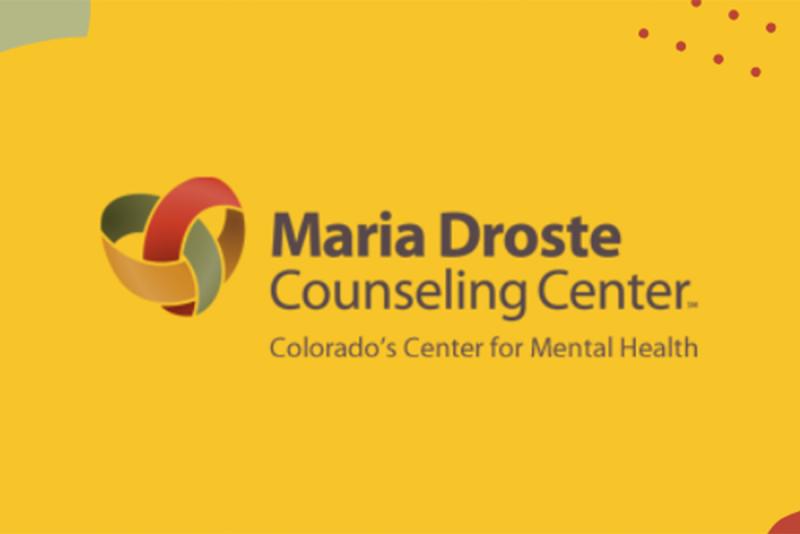A Powerful Field Partnership
GSSW and Maria Droste Counseling Center partner to train the next generation of mental health professionals

The University of Denver Graduate School of Social Work (GSSW) and Maria Droste Counseling Center have a shared aim to train the next generation of mental health therapists and macro-level change agents, and for more than 25 years, the organizations have partnered to offer field internships for GSSW students.
Based in Denver, the nonprofit Maria Droste Counseling Center (MDCC) provides accessible, community-centered, high-quality mental health counseling regardless of individuals’ ability to pay. As a clinical training center, MDCC also hosts interns from several Colorado universities, including the University of Denver. Each year, five to 10 students in GSSW’s MSW Program intern at MDCC.
“Interns are a crucial part of our mission to provide accessible mental health care, regardless of ability to pay, and their service allows us to reach more clients in need across our community,” says Heather Rera, director of co-located programs at MDCC. “We have been lucky enough to have GSSW interns as incredible assets in both our clinical and macro tracks, where they have provided therapy to clients in the community and have supported MDCC in elevating our internal work as a nonprofit and training center.”
Over the last academic year, GSSW student Jessica Manzanillo interned in MDCC’s Children First program, which provides free on-site counseling for K–12 students in 17 public schools. With a macro social work focus, Manzanillo tackled tasks such as developing resources to share in a monthly newsletter and collecting program data.
“My internship with MDCC really taught me how macro-level social work looks and feels. Without this internship, I probably wouldn’t have found out that I wanted to do this work,” says Manzanillo, who is pursuing an MSW Organizational Leadership & Policy Practice pathway and hopes to focus her career on advancing diversity, equity and inclusion. “I saw first-hand how important data collection was. I saw the disparities in the communities we were serving and how it was directly impacting our youth. I saw potential solutions to these problems through this data, which made me realize that macro-level social work is crucial in the fight for equity.”
Manzanillo also helped to coordinate the center’s new grant-funded Diversifying the Mental and Behavioral Health Workforce Project, which is working with community partners to grow and sustain a diverse pool of behavioral health providers. As part of this initiative, Maria Droste is offering stipends for BIPOC and LGBTQIA+ interns for the 2022–23 academic year, Rera says.
“Our social work interns and staff have an invaluable social justice lens that has helped move MDCC forward in our strategic initiatives,” says GSSW MSW alumna and former MDCC intern Taija Thomas, who now works full time as clinical training coordinator at the center. Thomas graduated in 2021 with a Mental Health pathway and a certificate in animal-assisted social work. “I have noticed that our social work interns, and specifically our GSSW interns, bring with them an internal drive and the skills to disrupt white supremacy culture and constantly push us, as an organization, out of our comfort zone and towards organizational growth. This speaks to the education GSSW students receive and how GSSW educators incorporate discussions around power, privilege and oppression into all spaces.”
2022 MSW graduate Hye Min Nam completed both her foundation and concentration-year field internships at MDCC. In the macro track during her first year, Nam supported the Children First program. In her second-year clinical internship, she served as an intern therapist, working with students in a K–8 Denver public school and with outpatient clients at the MDCC counseling center. In the clinical role, she was able to put her MSW coursework into practice, incorporating client-centered therapy, play-therapy, grief/loss counseling, cognitive behavioral therapy and other interventions in her work with youth.
“I appreciate the hands-on experience I gained from this internship,” says Nam, whose MSW pathway was in Mental Health. “MDCC equipped us well and also trusted us to practice our organizational and therapeutic skills.” Now, Nam will be putting those skills to work as a social worker in Aurora Public Schools — a career direction she says the internship inspired.
“Through this internship, I understood the difficulties that BIPOC families face when it comes to working with school systems. This inspired me to be part of the system to hopefully be a connecting piece for these families and students,” Nam says. “I learned through my internship that although therapy is important, there are also so many other external factors that need to be in place for a student to benefit from therapy. Therefore, I hope to incorporate both macro and micro aspects of social work in my role as a school social worker.”
Rich experiences like these are the goal of field internships, says GSSW Associate Professor Aneesha Bharwani, assistant dean for field education. “Maria Droste provides such a valuable service to our community, providing behavioral health services to all people, many whom may not be able to access services otherwise,” says Bharwani, noting that GSSW students annually contribute 557,550 hours to more than 750 community organizations through internships. Students, the University, partner organizations, and the greater community all benefit. “Maria Droste provides licensed supervisors to train our students on how to provide therapeutic services for vulnerable populations in their clinic, in public schools and in community settings. This training opportunity for our students is a vital component to their education and allows GSSW to be a part of this critical mission meeting the mental health needs of the community.”




